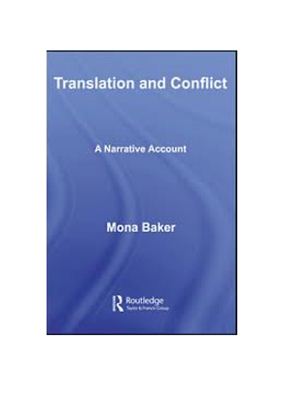Routledge; 2006.
201 p.
A highly topical book from a hugely respected figure in the field, Mona Baker’s Translation and Conflict is a timely exploration of the importance of the role of translators and interpreters to the political process. Given an increased interest in the positioning of translators in politically sensitive situations, as in the case of Katherine Gunn at GCHQ, and in settings such as Guantanamo Bay, Iraq and Kosovo, the book features extended examples that mainly focus on English and Arabic.
Presenting an original and coherent model of analysis which centres on translation and interpretation, Baker shows how the narrative location of the source text is maintained, undermined or adapted, and that far from being an adjunct to social and political developments, translation is a crucial component of the process that makes these developments possible in the first place.
Including research questions and further reading suggestions at the end of each chapter, this book is essential reading for students on courses in translation, intercultural studies and sociology. It is also highly recommended for the reader interested in the study of social and political movements.
201 p.
A highly topical book from a hugely respected figure in the field, Mona Baker’s Translation and Conflict is a timely exploration of the importance of the role of translators and interpreters to the political process. Given an increased interest in the positioning of translators in politically sensitive situations, as in the case of Katherine Gunn at GCHQ, and in settings such as Guantanamo Bay, Iraq and Kosovo, the book features extended examples that mainly focus on English and Arabic.
Presenting an original and coherent model of analysis which centres on translation and interpretation, Baker shows how the narrative location of the source text is maintained, undermined or adapted, and that far from being an adjunct to social and political developments, translation is a crucial component of the process that makes these developments possible in the first place.
Including research questions and further reading suggestions at the end of each chapter, this book is essential reading for students on courses in translation, intercultural studies and sociology. It is also highly recommended for the reader interested in the study of social and political movements.

